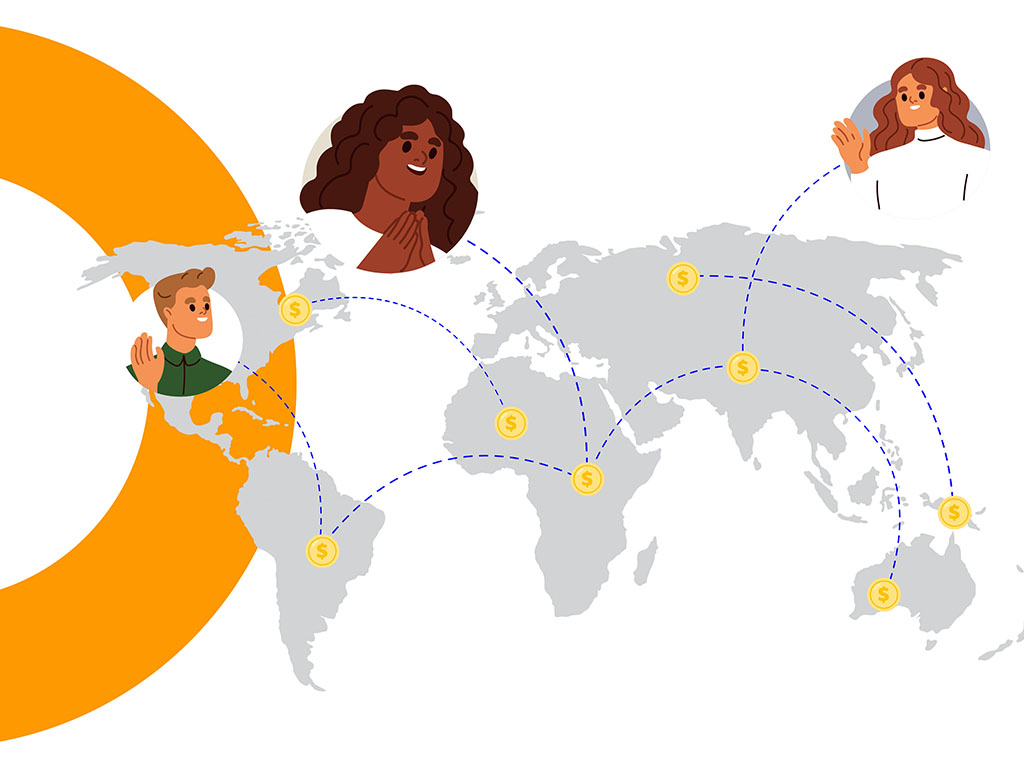Airtime Mania: Unveiling the Global Craze Sweeping Asia, Latin America, and Africa
10th April, 2023
Author: Paolo Montessori, CEO
Category: Prepaid Products

The use of mobile phones has transformed from being a mere luxury to an absolute necessity. People rely on their mobile devices for a wide range of services that offer convenience and efficiency. From paying bills to accessing content, almost every task imaginable can be accomplished with a simple tap or swipe.
As mobile phone usage continues to soar, airtime has emerged as a crucial tool for mobile network providers. It allows them to monitor user habits and usage patterns while also serving as a means of incentivization.
Interestingly, airtime has gained significant prominence in certain regions across the globe, particularly in Asia, Africa, and Latin America.
Let’s delve deeper into the reasons behind this phenomenon!
The Significance of Airtime for Telcos
In a world where mobile phone usage has surpassed an astonishing 7 billion mark in 2023, telecommunication companies (telcos) are investing significant resources to enhance their users’ experience. The days of purchasing scratch cards for airtime recharges and top-ups are long gone.
These services have undergone a digital revolution, bringing about increased efficiency for both users and telcos. This transformation has resulted in several other benefits, such as empowering telcos to effectively monitor the usage patterns of airtime among their customers.
The digitization of airtime recharges has also eliminated issues related to theft and security breaches that were prevalent with traditional scratch cards. Additionally, the process has become more transparent and streamlined.
Furthermore, airtime serves as a vital metric for telcos to expand their subscriber base by utilizing it as an incentive for users. Time and again, airtime rewards have demonstrated their effectiveness as a retention tool for loyal customers.
In this dynamic and rapidly evolving mobile landscape, telcos recognize the immense value of airtime and are leveraging its potential to deliver exceptional services while fostering customer loyalty.
Airtime Dominance in Asia, Africa, and Latin America: Exploring the Reasons
In recent years, emerging economies have witnessed a remarkable surge in mobile phone usage. Africa, a classic example of an emerging market, remains one of the few regions where experts foresee immense potential for mobile phone adoption. Asia, too, has achieved significant success in this regard, with major economies making substantial contributions to the widespread use of mobile phones. The population in these regions, characterized by aspirations and a hunger for better opportunities, forms the primary demographic that fuels the dominance of airtime, a trend also observed in Latin America.
Let’s delve into the factors that have contributed to the popularity of airtime in Asia, Latin America, and Africa:
Convenience: Airtime has emerged as a highly convenient means of communication, surpassing traditional options like landlines or postal services. Evolving technologies have transformed airtime into a multifunctional feature of mobile phones, extending its utility beyond mere communication. Digitization has further enhanced its convenience, eliminating the need to visit physical stores for recharges.
Flexibility: Another key aspect driving the dominance of airtime in these regions is its flexibility. Users have the freedom to choose the amount of airtime they wish to add to their accounts, and they can do so as frequently as desired. This flexibility proves advantageous for those who require occasional top-ups or prefer greater control over their spending. As a result, the cost of airtime becomes variable based on individual requirements.
Versatility: Airtime serves multiple purposes beyond communication. People utilize it for paying utility bills, engaging in gaming, participating in e-commerce activities, and much more. It has brought about enhanced transparency and efficiency, becoming an indispensable necessity for everyone. Additionally, banking and other financial services are commonly accessed through airtime.
Population: Asia is home to two of the world’s most populous countries, and Africa’s population is rapidly expanding. With a greater demand for services, the dominance of airtime in these regions is unsurprising.
Security: The advent of digital airtime has significantly improved security and privacy for telco users. Previously, the physical transfer of cash or checks carried a higher risk of theft or fraud, a concern that has been largely mitigated.
The reasons behind airtime’s dominance in Asia, Latin America, and Africa are evidently clear. As airtime continues to gain popularity, telcos are gearing up to provide enhanced services and incentives to their users.
This is where a global B2B product marketplace like Prepay Nation becomes essential. With a proven track record of assisting telcos in rewarding their business users through the distribution of domestic and cross-border mobile airtime transfers, data, bundles, e-gift cards, and utility payments, Prepay Nation stands as the preferred partner for these services.
The time has come to act swiftly and make your move. Join the list of over 600 mobile network operators who have benefited from Prepay Nation’s array of prepaid products, and witness a boost in your sales and revenue. Contact us today!

Author
Paolo Montessori, CEO